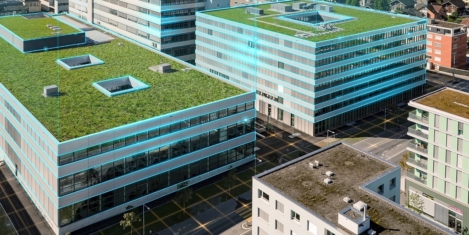To provide the best experiences, we use technologies like cookies to store and/or access device information. Consenting to these technologies will allow us to process data such as browsing behaviour or unique IDs on this site. Not consenting or withdrawing consent, may adversely affect certain features and functions.
The technical storage or access is strictly necessary for the legitimate purpose of enabling the use of a specific service explicitly requested by the subscriber or user, or for the sole purpose of carrying out the transmission of a communication over an electronic communications network.
The technical storage or access is necessary for the legitimate purpose of storing preferences that are not requested by the subscriber or user.
The technical storage or access that is used exclusively for statistical purposes.
The technical storage or access that is used exclusively for anonymous statistical purposes. Without a subpoena, voluntary compliance on the part of your Internet Service Provider, or additional records from a third party, information stored or retrieved for this purpose alone cannot usually be used to identify you.
The technical storage or access is required to create user profiles to send advertising, or to track the user on a website or across several websites for similar marketing purposes.
 Swiss Post Solutions (SPS), has released new research that claims how the pandemic has impacted front of house strategies for UK businesses. Half (50 percent) of UK companies plan to introduce interactive technologies to help overcome new ‘front of house’ (FOH) challenges that have been imposed by COVID19. A further 41 percent of businesses plan to outsource FOH services altogether. (more…)
Swiss Post Solutions (SPS), has released new research that claims how the pandemic has impacted front of house strategies for UK businesses. Half (50 percent) of UK companies plan to introduce interactive technologies to help overcome new ‘front of house’ (FOH) challenges that have been imposed by COVID19. A further 41 percent of businesses plan to outsource FOH services altogether. (more…)






 Apple has announced an acceleration of its US investments, with plans to make new contributions of more than $430 billion and add 20,000 new jobs across the country over the next five years. The plans include the creation of a new
Apple has announced an acceleration of its US investments, with plans to make new contributions of more than $430 billion and add 20,000 new jobs across the country over the next five years. The plans include the creation of a new 
 A recent survey by
A recent survey by 
 More than a third (35 percent) of UK IT decision makers admitted that their remote workers have already knowingly put corporate data at risk of a breach in the last year according to an annual survey – conducted by
More than a third (35 percent) of UK IT decision makers admitted that their remote workers have already knowingly put corporate data at risk of a breach in the last year according to an annual survey – conducted by 
 New research by
New research by 


 As the UK prepares to return to normal in the coming months and industries reopen, research from
As the UK prepares to return to normal in the coming months and industries reopen, research from 


 If a robot worker makes a mistake on the job, or annoys customers, businesses may not give it a pink slip and a cardboard box for its office belongings, but companies may be forced to shut down these expensive machines, according to a team of researchers. Knowing how to better design and manage these robots may help service industry firms both avoid losing their investments in the robots, as well as secure an increasingly necessary source of extra help, the team added.
If a robot worker makes a mistake on the job, or annoys customers, businesses may not give it a pink slip and a cardboard box for its office belongings, but companies may be forced to shut down these expensive machines, according to a team of researchers. Knowing how to better design and manage these robots may help service industry firms both avoid losing their investments in the robots, as well as secure an increasingly necessary source of extra help, the team added. 
 Lockdown has meant the majority of UK office-based employees have taken up working from home arrangements over the last year, and it seems that many employers lack trust in their employees when they can’t physically see them. Last year
Lockdown has meant the majority of UK office-based employees have taken up working from home arrangements over the last year, and it seems that many employers lack trust in their employees when they can’t physically see them. Last year 
 Facilities management businesses are failing to keep their workforce at the heart of their digital transformations, leading to employee dissatisfaction and hindering the success of digitalisation initiatives, claims new research by
Facilities management businesses are failing to keep their workforce at the heart of their digital transformations, leading to employee dissatisfaction and hindering the success of digitalisation initiatives, claims new research by 








April 14, 2021
The digital world is not necessarily greener than the physical world
by Neil Franklin • Comment, Environment, Technology